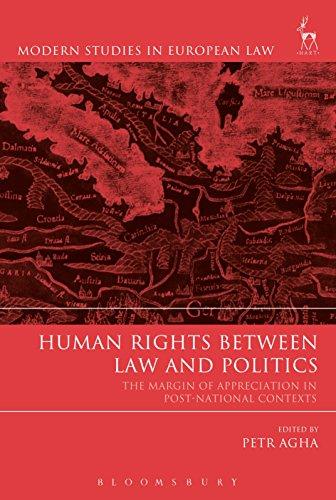Answered step by step
Verified Expert Solution
Question
1 Approved Answer
Which of the three branches of government was really an afterthought? The Court will never be that far out of tune with the prevailing ________
- Which of the three branches of government was really an "afterthought?"
- "The Court will never be that far out of tune with the prevailing ________ and ________ of its time."
- Which Chief Justice "invented" the Supreme Court, transcending his own life and changing American history?
One Nation Under Law:
- "The Framers knew they wanted an _________ judiciary, free from the pressures of politics, but little else was determined."
- According to current Chief Justice John Roberts, what was the work of the early Supreme Court?
- What was the original size of the Supreme Court - or number of Justices on the bench?
- What was it that drew the Supreme Court into the momentous battles of the early republic?
- Which group advocated a stout national government and dominated politics in the late 19th century?
- Who won the presidency in the election of 1800?
- Who did "lame duck" President Adams nominate as Chief Justice of the Supreme Court?
- How was the swearing in of President Jefferson "one of the most ironic moments in American history?"
- What was the first fight between President Jefferson and Chief Justice Marshall?
- What was President Adams' last partisan act upon leaving the presidency?
- "The key lesson of Marbury v. Madison, 1803, is, don't give important documents to your _______________."
- How many commissions sat signed, sealed, and undelivered when President Jefferson came into office?
- How did President Jefferson direct his new Secretary of State, James Madison, concerning the commissions?
- Who showed up at the Supreme Court ten months later demanding delivery of the commissions?
- Describe Secretary of State Madison's response to Chief Justice Marshall's demand to give just cause for withholding the commissions?
- How did the Jeffersonian dominated Congress respond to this demand by the Supreme Court?
- According to Louis Weinberg, what would have been the effect if the Supreme Court, or Chief Justice Marshall, had backed down in this case?
- What was the first case on the docket in February of 1803?
- Where was the Supreme Court meeting at the time?
- Describe Chief Justice Marshall's decision.
- Why did the Supreme Court not have jurisdiction in this case?
- How did this decision firmly establish the Supreme Court's central power of "judicial review?"
- According to current Chief Justice Roberts, what was Marshall's "real significant and unique contribution?"
- There is no Brown v. Board of Education; there is no Roe v. Wade; there is no Bush v. Gore; without the power of ________ ________."
"Marshall"
- Where did Supreme Court sessions take place in the early 19th century?
- For what reason did Chief Justice Marshall decide to shed the scarlet robes traditionally worn on the Supreme Court in favor of the black robe?
- In what way did Chief Justice Marshall establish the Supreme Court in a non-political and non-partisan manner?
- How did Chief Justice Marshall add flare to the court's session each year?
- Describe Chief Justice Marshall's influence on the way the Supreme Court did business.
- According to retired Associate Justice Sandra Day O'Connor, why did Chief Justice Marshall insist upon unanimous decisions by the Supreme Court?
- How did Chief Justice Marshall respond to an associate Justice desiring to register his dissent?
- What argument had "bedeviled" the republic since its founding?
- Describe the two general views of the federal government as represented by President Jefferson and Chief Justice Marshall.
- Describe John Marshall's military experience in the Revolutionary War.
- How did his military experience impact his views concerning federalism?
- "When individual ______ misbehave, John Marshall's Court slaps them down."
- Explain the significance of the Supreme Court's decision, under Chief Justice Marshall, in Fletcher v. Peck, 1809.
- "No state shall pass any law impairing the obligation of ________." - Quote taken from Article I, Section 10 of The U.S. Constitution
- Describe the significance of Chief Justice Marshall's crowning decision in 1819.
- Why was Marshall treated as a traitor upon returning home to Virginia?
- Upon what issue did Jefferson and Marshall find themselves temporarily in "rare agreement," only to split in 1820?
- Why was retired President Jefferson furious about the Supreme Court's decision in McCulloch v. Maryland, 1819?
- Who was swept into the presidency by the "rabble" Marshall had so long feared in 1828?
- What was one of the most "recalcitrant" states in the United States in the early 19th century?
- "Georgia's seizure of Cherokee lands had been _______." Chief Justice Marshall
- "Marshall has made his decision, now let him _______ it!" President Jackson
- "The lesson of the Cherokee cases is that the power of the Supreme Court is merely the power to ________."
- Describe the state of the Supreme Court when Chief Justice Marshall passed away in July of 1835.
- Who did President Jackson appoint as Chief Justice to replace John Marshall?
- "I yield to the conviction that our ___________ cannot last. The Union has been prolonged thus far on _____________. They cannot continue." Chief Justice John Marshall
Step by Step Solution
There are 3 Steps involved in it
Step: 1

Get Instant Access to Expert-Tailored Solutions
See step-by-step solutions with expert insights and AI powered tools for academic success
Step: 2

Step: 3

Ace Your Homework with AI
Get the answers you need in no time with our AI-driven, step-by-step assistance
Get Started


